‘Alan Carr could be frontrunner’: Who will win celebrity Traitors?
36 minutes agoAlex TaylorBBC News Culture reporter•@Tayloredword

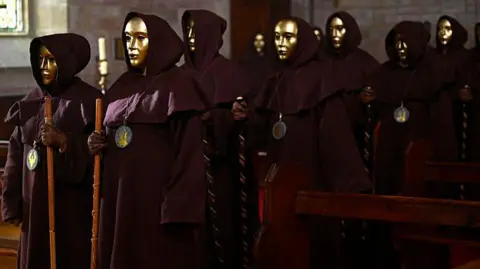 BBC/Studio Lambert/Peacock/Euan Cherry
BBC/Studio Lambert/Peacock/Euan CherryThe line-up for UK’s celebrity edition of The Traitors has finally been revealed – with enough star power to rival Graham Norton’s chat show sofa.
The 19-strong roundtable of stars joining Claudia Winkleman at Ardross Castle in Scotland boasts household names across sport and the arts.
Among them are comedians Stephen Fry and Alan Carr, chat show host Jonathan Ross and Olympic diver Tom Daley – all vying to win the game of deception.
Singers Paloma Faith, Cat Burns and Charlotte Church will also be there, alongside others including historian David Olusoga, broadcaster Clare Balding, actress Celia Imrie and Ted Lasso star Nick Mohammed.
The third series of The Traitors, which aired in January, attracted more than 10 million viewers with its opening episode and 7.4m for its live finale.
The show’s format is deceptively simple. A handful of contestants, known as traitors, pick off their castmates, the faithful, with nightly “murders” – while the faithful try to work out their identity. If any traitors remain at the end, they nab the cash prize (though this time the money goes to a charity of the winner’s choosing).
The celebrity season, which airs this autumn, will bring a unique mix of fame, ego and public image to the popular format. BBC News speaks to psychologists to uncover likely faithfuls, traitors and frontrunners.
The comedians

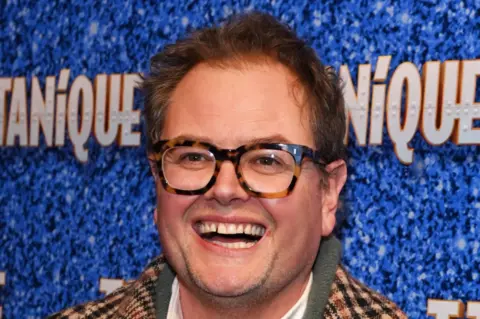 Getty Images
Getty ImagesAlan Carr, Jonathan Ross, Stephen Fry, Joe Wilkinson and Lucy Beaumont
Comedians are likely to be “the obvious frontrunners to go the distance”, says Susie Masterson, a psychotherapist registered with the British Association for Counselling and Psychotherapy (BACP).
Humour can be a highly adapted defence mechanism, she says, which can make comedians more opaque than other contestants.
Comics are also quick on their feet, used to presenting a persona and masking in public – this makes them well-equipped traitors, notes Masterson.
“I think Alan Carr could well be a frontrunner,” she says. “There is an affability about him, but he’s also not afraid of stirring the pot. He’s very authentic and has a big personality without necessarily dominating the space.”
But fame could disadvantage the high-profile names in the group, like Jonathan Ross. Status, explains consultant counselling psychologist Dr Ritika Suk Birah, can create a power imbalance.
“It can make others feel threatened or suspicious of their motives, even when there’s no evidence,” she says.
This may be a particular challenge for those understood as both intelligent and articulate, like Stephen Fry.
This perception can lead others to assume strategic manipulation, potentially forcing early elimination out of fear rather than logic, adds Dr Birah.
Unfortunately, Masterson also believes Fry could fit into the category of contestants who “struggle with criticism or scrutiny”.
“He might struggle with banishing people as well as any potential heat he might receive,” she says.
The singers

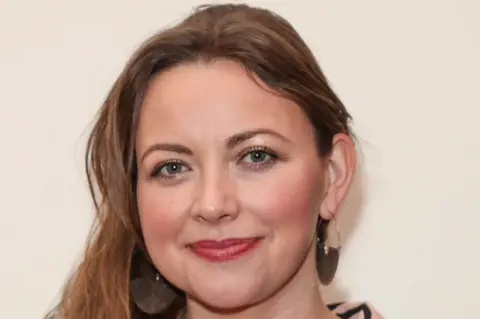 Getty Images
Getty ImagesPaloma Faith, Cat Burns and Charlotte Church
Stage performers like Cat Burns are used to high-pressure situations, interacting with a variety of people in a live environment. “This could help at the round table,” says Masterson.
She adds that Paloma Faith and Charlotte Church are both “big personalities and have direct communication styles”. While this may make them good motivators, Masterson is unsure whether they can appear contained or measured enough to endure as traitors.
The sports stars

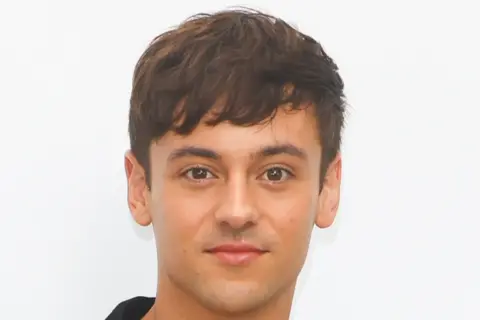 Getty Images
Getty ImagesTom Daley, Joe Marler and Clare Balding
Sports people will likely make good faithfuls, says Masterson, as strong physical types tend to do better in most of the challenges and can also both lead and motivate the rest of the group. They are also usually goal-driven and able to handle pressure.
“They are quite different personalities in this group, and I’m interested to see how it might play out,” says Masterson.
“Clare Balding is very practical and pragmatic, but we have also seen her emotional side on TV recently”.
She feels Tom Daley, and to a lesser extent Balding, could well be “golden retriever types” – loyal and supportive – whereas rugby star Joe Marler may be less likely to want to talk things through.
As for the in-built competitive edge, she says success depends on whether they can “play as a team rather than against each other.”
The actors

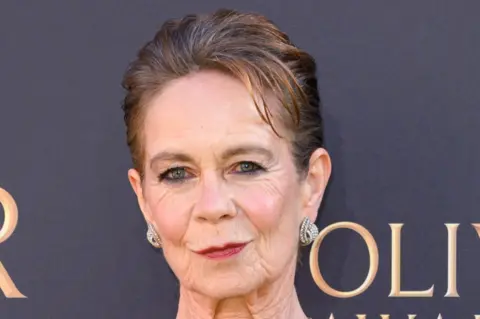 Getty Images
Getty ImagesNick Mohammad, Mark Bonnar, Tameka Empson, Ruth Codd, Celia Imrie
Actors, like comics, may also face distrust depending on how much their castmates expect them to be naturally deceptive.
However, among the group of actors, there is a good mix of ages, types of acting and levels of fame – from soap star Tameka Empson to established film names like Mark Bonnar and Celia Imrie. This could “balance out this superficial disadvantage” by muddying the threat level, says Masterson.
She says cast members with lesser-known personalities, like Ruth Codd and Nick Mohammed, might be harder to read.
The media personalities

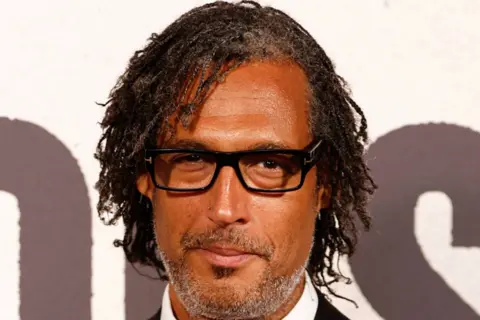 Getty Images
Getty ImagesDavid Olusoga, Niko Omilana and Kate Garraway
Presenters like Kate Garraway will be used to live interactions, giving them a potential advantage at the roundtable, notes Masterson.
Historian David Olusoga, as a heavyweight intellect, will likely face the same preconception struggle as Fry, she says.
Masterson also adds that quiet people can struggle to go the distance on the show, as they can either be perceived as threatening or unsupportive by the group.
But the show’s history has shown this isn’t always the case. Last year’s contestant Francesca was hardly visible in the first few episodes, even prompting memes about her supposed irrelevancy, before growing into the show and making it to the final.
One dark horse is YouTube prankster Niko Omilana, says author Eloise Skinner, who holds a diploma in psychotherapy.
His career in social media and online content might offer an edge in the game, as someone fluent in an online world that is hyper-aware of perception.